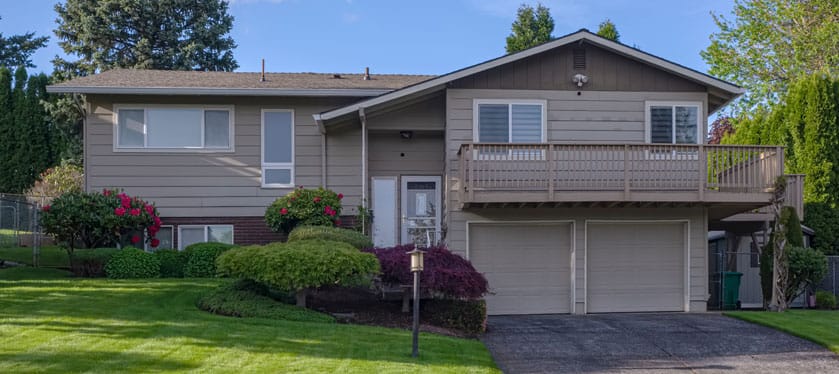Untangling the Web: Dividing Co-Ownership of Property

Quick Summary
Co-owning property can quickly become complicated when disagreements arise over control, costs, or management. If you’re feeling trapped in a co-ownership arrangement, whether through inheritance, business, or family decisions, there are legal remedies to help. Options like partition allow co-owners to divide or sell property fairly—even without unanimous agreement. This article outlines common co-ownership challenges and provides actionable solutions. If you’re facing disputes over co-owned property, contact t Eric B. Smith, Esquire to explore your rights and resolve the issue effectively.
Co-owned Real Estate. The joint ownership of property can arise in many different ways. Many times, it is with the best intentions that the parties decide to own property together. Co-ownership often arises from:
- A devise in a Will or a conveyance by a Trust to several individuals as co-owners;
- A business decision, such as partners owning property together;
- A family decision, to own a vacation property, investment property, or family property, together;
- A family decision to pass down family-owned real estate to successive generations;
- A real estate investment, where several individuals decide together to invest in a piece of real estate;
- The result of a divorce.
Co-owners of real estate are generally either co-tenants or joint tenants.[1] Both involve co-owning real estate with at least one other person. Regardless of the source of co-ownership of property, the cause of the ownership is usually either voluntary (in the case of a person’s decision to co-own real estate with another) or involuntary (a person finds themselves as a co-tenant through someone else’s decision).
In either scenario, you always have the right to terminate the co-ownership of real estate and seek recovery of permitted monetary claims against the other co-owners.
Monetary claims you may have might include:
- The payment (or non-payment) of property taxes;
- Repairs or maintenance for the preservation of the property;
- The payment of rental value by a co-tenant in possession or control of the real estate;
- Claims for damages to the property for neglect or waste;
- Claims in connection with timber, crops, rentals, or appropriate proceeds from the land.
The Problem. Problems typically arise in the co-ownership of property when:
- One co-tenant, or owner, ‘takes over’ the real estate by either making all decisions, excluding some or all other owners, or physically occupying the property to the exclusion of some or all other owners;
- Some or all of the co-tenants no longer can afford to own the property;
- Personality differences break down cooperation about the property and its management;
- Some of the owners decide that they no longer want to own the property;
- Some or all of the owners decide to exclude other owners;
- Some of the owners decide to buy out other owners;
- Fewer than all owners decide that they want to sell the property.
Many co-tenants of jointly owned property feel trapped in these scenarios. They continue to co-own real estate over which they have no control, no possession, no profit, all while watching another co-tenant occupy the property and run a successful business while paying no rent, or another owner resides at the property and pays no rent, or, the land just remains under-utilized, but taxes and repair bills mount.
Often because the property is co-owned with family, friends, or business associates, decisions that are ordinarily hard to make, become impossible to make, and discussions “about the land” quickly turn into controversial encounters. Fortunately, there is a way to untangle the web of co-owned property and the rights of a co-tenant.
The Solution. There are two chief remedies when addressing these problems.
The first, and most powerful, is partition. Partition is a legal remedy that allows one or more co-owners to divide or liquidate the co-owned real estate into the respective interests of each owner, and the allocation of related claims, such as rent, as discussed below, taxes, repairs, and waste.
The partition process is completely provided for in Pennsylvania’s Rules of Civil Procedure, with every step of the process outlined. Nevertheless, attorneys who are not familiar with this process often completely overlook this step-by-step guide provided by the court’s own procedural rules.
The partition process even provides for the right to a private sale as between the parties, if one or more of the co-tenants desire to buy-out the other owners. What must be remembered is that every co-tenant of real estate is permitted to partition co-owned property, unless there is an agreement between all co-owners that limits those rights.
The second remedy is the right to rental value. 68 P.S. Section 101 is straightforward and provides:
In all cases in which any real estate is now or shall be hereafter held by two or more persons as tenants in common, and one or more of said tenants shall have been or shall hereafter be in possession of said real estate, it shall be lawful for any one or more of said tenants in common, not in possession, to sue for and recover from such tenants in possession his or their proportionate part of the rental value of said real estate for the time such real estate shall have been in possession as aforesaid; and in case of partition of such real estate held in common as aforesaid, the parties in possession shall have deducted from their distributive shares of said real estate the rental value thereof to which their co-tenant or tenants are entitled.
Although recoverable in a partition action, rental value itself may be the subject of an independent suit against another co-tenant in possession by a co-tenant not in possession. Therefore, a co-tenant out of possession may enforce their right to a share of the rental value, whether or not the rent is actually collected.
Similar rights exist as between co-tenants regarding the growing of crops, or the timbering of the land, and mining for coal. Further, in a proper case, a co-tenant may seek an accounting with respect to these matters.
Word of Caution. Before voluntarily entering into the co-ownership of real estate, be certain to know your rights, and limitations, as to the real estate and between co-tenants. Likewise, remember that every co-tenant, even of the smallest fraction, enjoys ownership and possession rights to 100% of the property unless limited by a written agreement.
Therefore, as an example, an owner with a 5% interest in the real estate, may enjoy 100% of the property 100% of the time, even if it is contrary to the wishes of the co-owners that own the other 95% of the interest in the property. An unhappy co-tenant may always seek partition.
Co-ownership Disputes Can Create Complex Challenges That Require Skilled Legal Intervention.
It is truly important that you retain counsel familiar with partition actions. Often, counsel, and at times the Court, will overlook the specific requirements of the rules of procedure that govern partition actions. For instance, partition actions are made of at least three distinct orders, each of which have their own distinct appeal process. Likewise, the method, manner and timing of the sale of the disputed property is also often overlooked, with the rights of the joint owners giving way to a “rush” to publicly sell the property. Finally, significant legal and equitable nuances exist as it relates to the payment of down money, the timing and facts underlying adding a name to a deed, or to a mortgage, the nature of any improvements made to the property, and the role of the law governing gifts and voluntary payments. Partition is not just about dividing and selling jointly owned property. There are many more considerations.
Whether you’re facing disputes over property use, partition actions, or claims for expenses like taxes or repairs, Eric B. Smith, Esquire, and his experienced legal team are here to help you untangle the web of co-ownership. With a deep understanding of Pennsylvania property law, Mr. Smith provides clear guidance to protect your rights and resolve disputes effectively.
Recognized by Super Lawyers and Best Attorneys for his dedication to client success, Mr. Smith has earned a reputation as a trusted authority in real estate and property law. His leadership as President of the Montgomery Bar Association (2017) underscores his standing as a respected figure in the legal community.
Don’t wait until after a dispute to address your co-ownership challenges. Contact Eric B. Smith, Esquire, today to discuss your case and explore your legal options. Learn more about Mr. Smith here.
[1] The difference between co-tenants and joint tenants is not explained here. Should you have a question concerning the difference in these two forms of ownership, please contact the author.
Frequently Asked Questions
How can co-owners prevent disputes from arising in the first place?
Many disputes can be avoided by creating a written agreement that clearly outlines each co-owner’s rights, responsibilities, and plans for the property, including how decisions will be made and what happens if someone wants to sell their share. We can help draft or review such an agreement to ensure it protects everyone involved.
What options are available if a co-owner refuses to participate in the partition process?
A partition action is just like any other court case. If a co-owner refuses to engage, the partition process will still proceed through the court system. You may be able to take a default against a non-participating owner. We can file the necessary legal documents to compel their participation or proceed without them, ensuring your rights are upheld.
Does a joint owner that occupies the property owe rent?
Generally speaking, yes, if one owner occupies the property and the other one does not, the occupying owner will owe rent. If the occupying owner is also paying the mortgage, then, there may be a credit or set off against rent in some circumstances.
Can the Court force me to sell the jointly owned property?
The Court cannot force a sale of the property, but, if a physical or monetary division of the property cannot be accomplished as provided by the rules of procedure, then a sale of the property might result.
Will I have the opportunity to buy the property before it is exposed to a public sale?
Yes, if the Court and counsel follow the rules of procedure, each of the parties will have the opportunity to first buy the property for the value set by the Court before a public sale can occur.
What if the joint owners each want to buy the property?
The rules of procedure provide that if more than one of the joint owners wants to buy the property, then, the Court will conduct a private bidding process.
Updated: December 10, 2024






